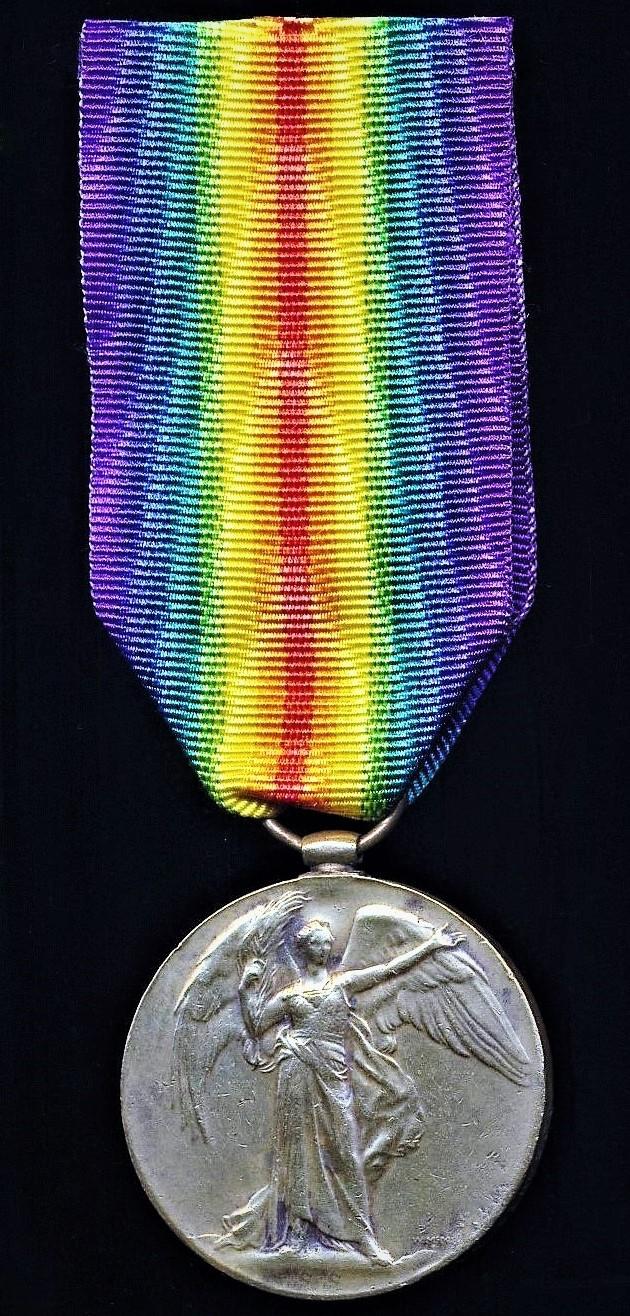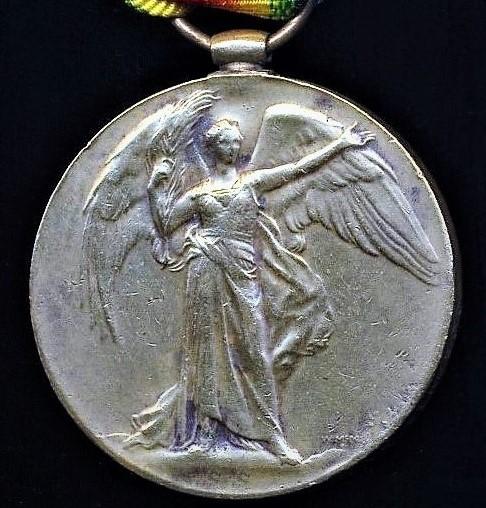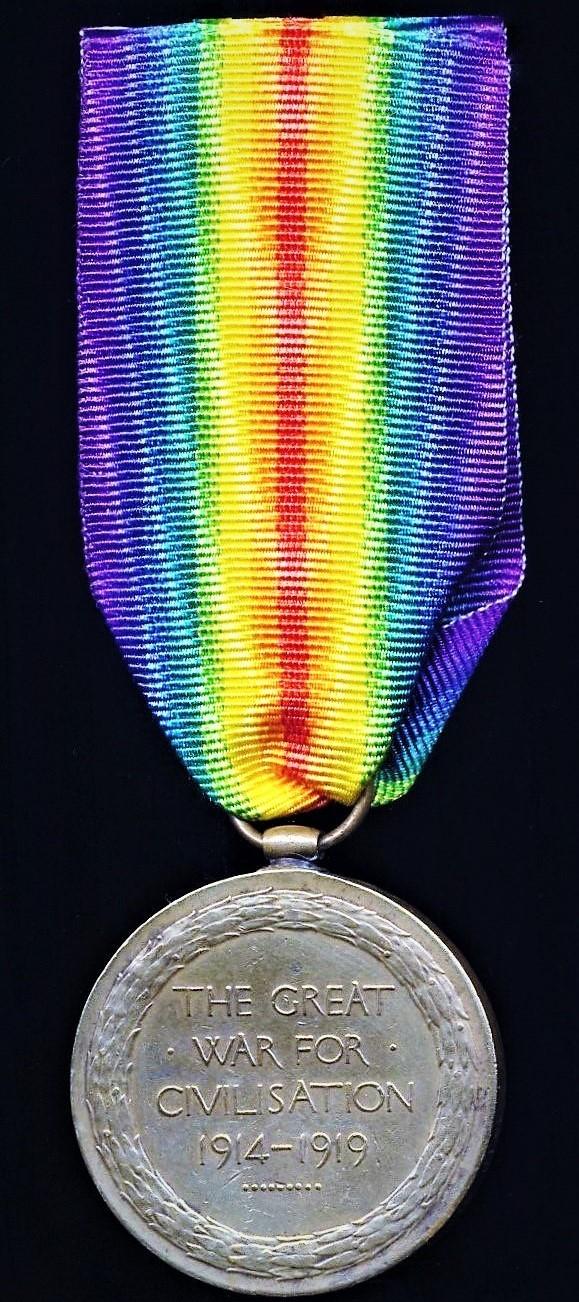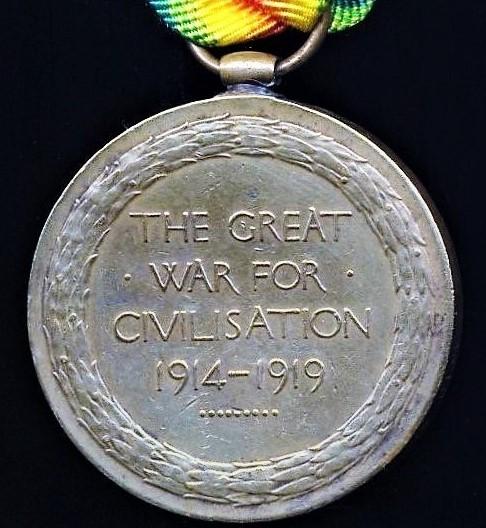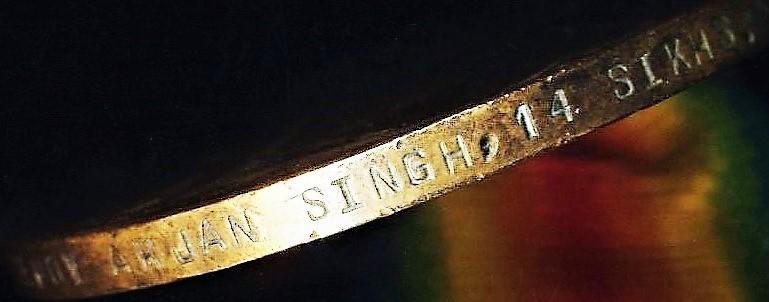Interallied Victory Medal (4619 Sepoy Arjan Singh, 14 Sikhs)
The recipient was an Indian soldier of the Sikh faith, serving as a Sepoy (Private) with the 14th (Ferozepore) Sikhs an infantry regiment of the British Indian Army
During the Great War the 14th Sikhs served with great distinction at Gallipoli during the Dardanelles Campaign of 1915, and in Mesopotamia
The 14th Sikhs were the oldest and senior-most 'Sikh' infantry regiment of the British Indian Army
Ferozepore Sikhs: 1/11 Sikh - the most senior Sikh battalion of the British Indian Army - has it's origins dating to 1846, in the wake of the British-Sikh War of 1845, with it's ranks recruited from amongst Sikh soldiers of the disbanded Sikh Army. The full lineage & chronology of the regiment being;
- 1846: Regiment of Ferozepore
- 1861: 15th Regiment
- 1861: 14th Bengal Native Infantry
- 1864: 14th (The Ferozepore) Regiment of Bengal Native Infantry
- 1885: 14th Regiment of Bengal Native Infantry (Ferozepore Sikhs)
- 1901: 14th (Ferozepore) Sikh Infantry (1901–1903)
- 1903: 14th Ferozepore Sikhs (1903–1906)
- 1906: 14th Prince of Wales's Own Ferozepore Sikhs
- 1910: 14th King George's Own Ferozepore Sikhs
- 1922: 1st Bn (King George's Own) (Ferozepore Sikhs) 11th Sikh Regiment
During the Second World War 1st Battalion Sikh Regiment served in Burma
Post independence, the 1st Battalion Sikh Regiment in 1981 was re-designated as 4th Battalion Mechanised Infantry Regiment (1 Sikh). To mark the departure of 1/Sikh from the Sikh Regiment, the latter no longer have a '1st Battalion'
Condition: VF
Code: 22775



